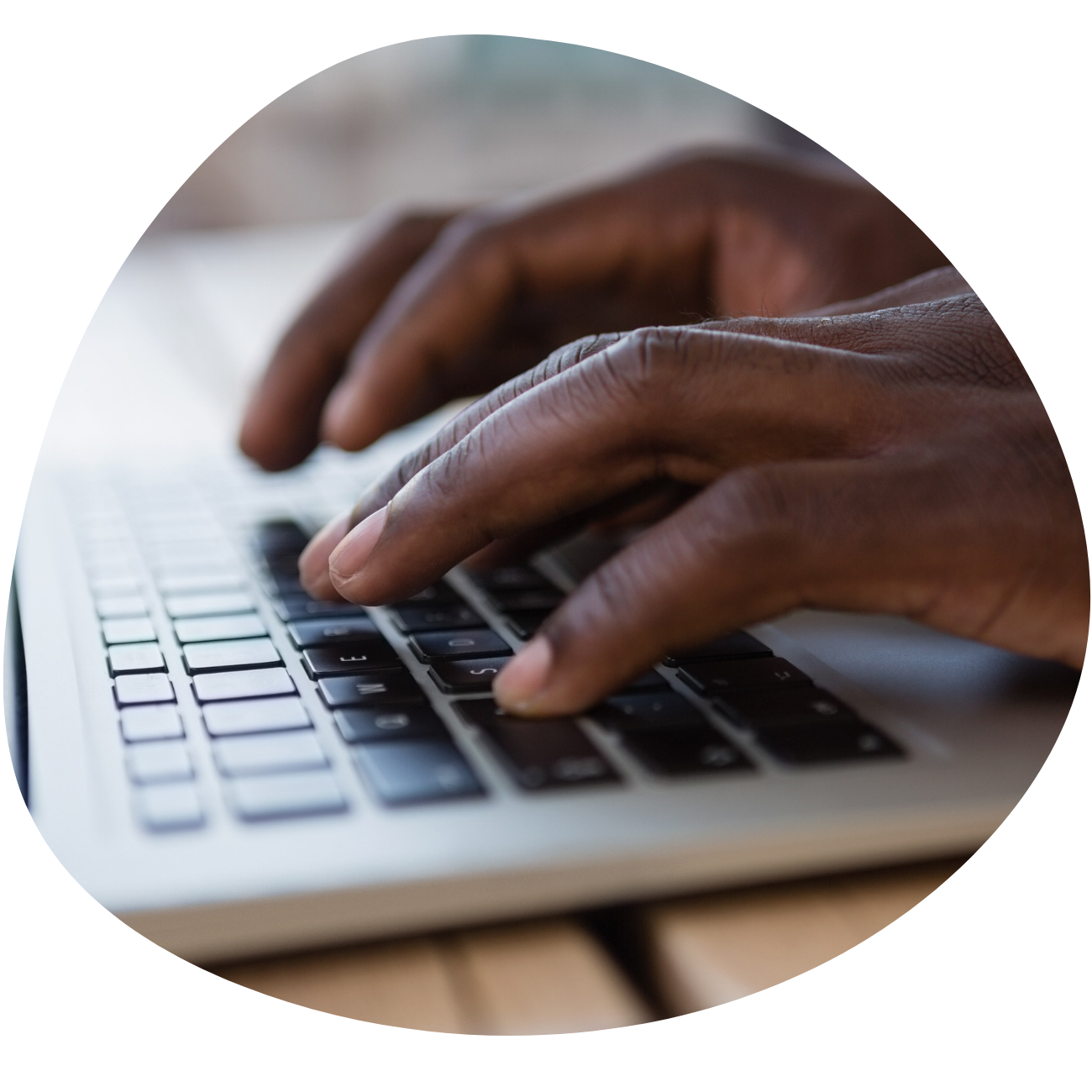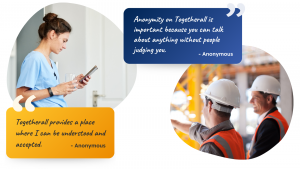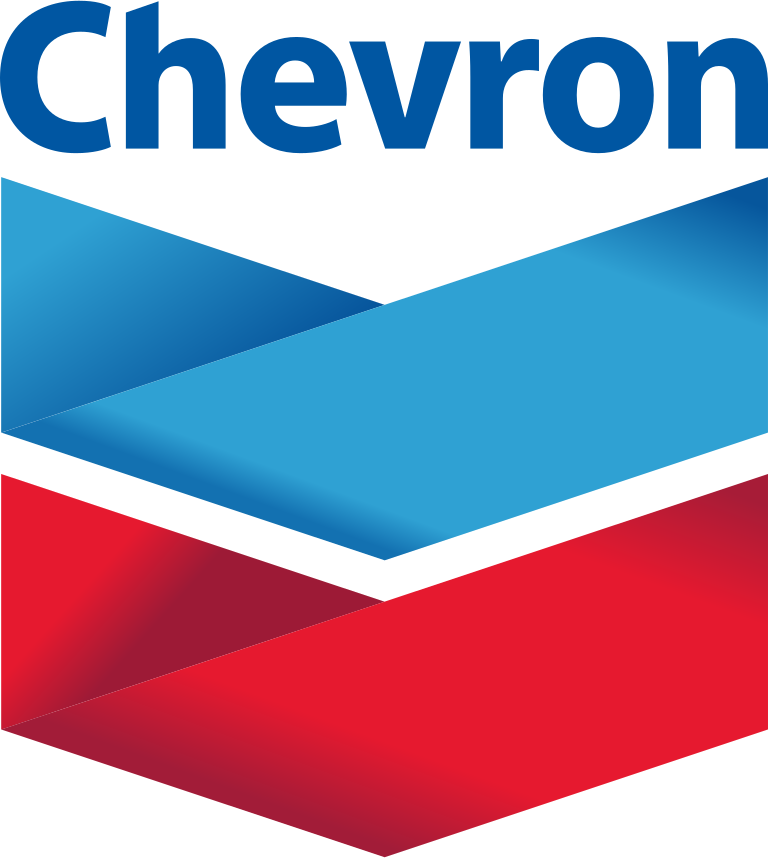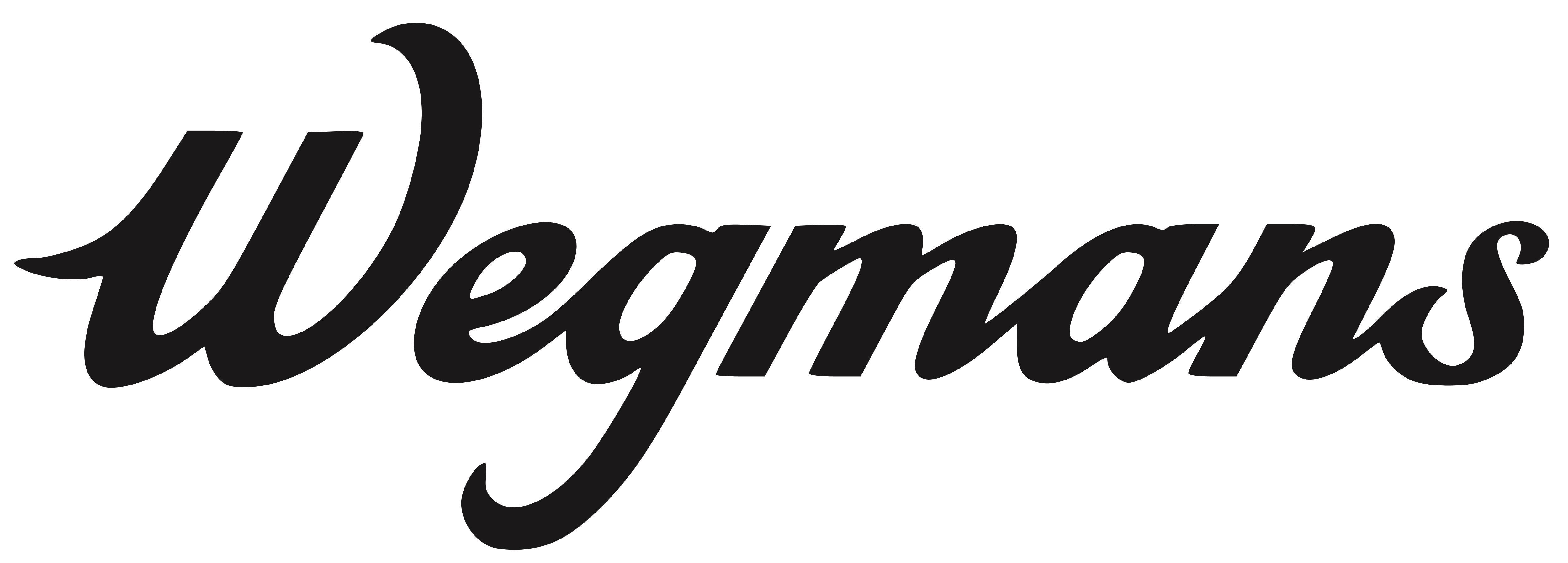Community is essential in getting through difficult times. Loneliness, isolation, and a lack of social connection can exacerbate personal challenges and mental health conditions.
Employers, unions, and professional associations struggle to keep their employees and members connected and mentally healthy. Additionally, even though most employers and member organizations have an Employee Assistance Program (EAP) and/or counseling services available, many employees and members do not reach out for help.
That’s where Togetherall comes in. Our goal is to help shape a world where conversations about mental health are normalized— no one should suffer alone.
Togetherall’s community has broad appeal and applicability across demographics, issues, severity, and stage of intervention. Togetherall fills a gap in mental health service offerings that can bridge self-help and one-to-one services, and provide wrap-around support alongside higher intensity interventions.
No matter who you are, where you are, or what you are struggling with, there is a place in Togetherall for everyone.

Togetherall can be uniquely configured to specific populations so members can connect and support each other through shared experiences specific to their job. Whether your employees or members are healthcare workers, first responders, teachers, or skilled trades laborers, Togetherall provides a welcoming, safe space for folks who often feel like traditional mental health services aren’t for people “like them”.


A safe, anonymous, online peer-to-peer support community, proven to engage those who don’t traditionally reach out for help.
A complementary offering to those employees in counseling or treatment.
24/7 clinical moderation: licensed clinicians monitor and moderate around- the- clock for the safety of members, and to ensure the community remains inclusive and supportive.
At-risk members are identified, assessed, and navigated to appropriate support, depending on the level of risk.
The most cost-effective human-to-human mental health service available.
48%
indicate they have no other form of support outside of Togetherall
55%
shared something for the first time in our community
46%
identify as Black, Indigenous, or a Person of Color
5%
identify as trans or non-binary














